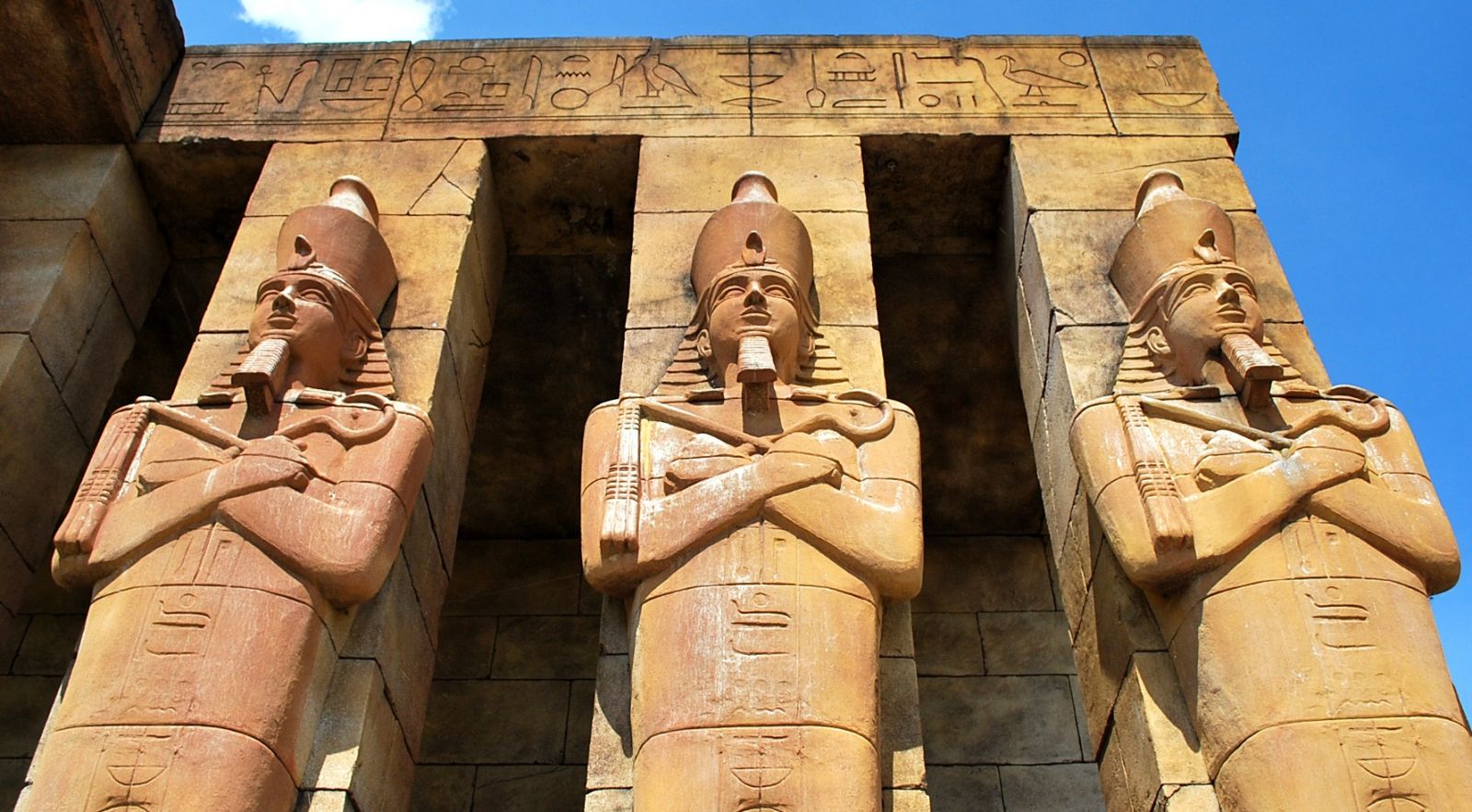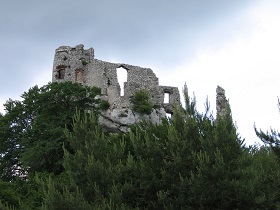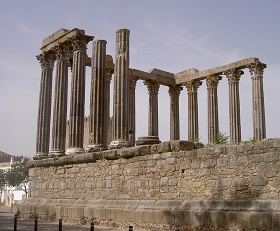A guide to making a historical documentary
Making a historical documentary? Not sure where to start? Then look no further. Dr. Chris Brown can help.
Dr. Brown has appeared in several history-based TV shows, published 11 books and delivered countless academic papers and commercial presentations on the subject. Here he casts his view on historical documentaries and gives advice to those making this type of programme - from choosing an expert to using CGI.
"Fifty years of watching TV history programmes has shown me that there have been many fine and informative productions, including a fair number that I watched more than once. Then there's all the others....
Television has enormous potential as a vehicle for delivering informative history that is entertaining, stimulating, and even inspiring. One thing is for sure, no historian ever made a PowerPoint presentation that was half as effective as a well-made TV documentary.
Even so, the television industry could be much better at delivering history - without blowing the production budget. Here's my tuppence-worth on the subject...

Choosing your experts
Academics are an obvious source of material and constitute a pool of experience and expertise. However, they are also often dull - trust me - I'm an expert at being dull. But if you choose the right scholars you will get the quality of material that you really want and as a rule scholars are cheap, so you can't go wrong... or can you?
The problem with academics is that they get paid so little anyway that if you offer them a fee to talk about virtually anything they will generally accept it, but that doesn't mean that they actually know much about your topic.
If you want your money's worth from academics you have to make sure you get the right ones. So how do you find them? Here are four approaches that can help secure a suitable scholar:
Universities
One way is to search the websites of university history departments, look for courses that cover your period and topic and get in touch with the person who teaches the course and offer them a fee. Although this can be time-consuming and potentially ineffective if you don't know your way around the jargon of university course titles.
Authors
Another approach is to search online for book titles that cover your subject, get in touch with the authors and offer them a fee. A word of warning though - just because someone has had a book published doesn't mean that they are an expert, merely that they could persuade a publisher (Gordon Brown has written about economics ....need I say more?).
Or get in touch with me
I would start by making a list of suitable candidates and offer them a fee. To some extent I'll use the same methods, but the 'unique selling point' is that I'll be able to do it more efficiently because I'm in a better position to connect your project with their knowledge.
Auntie Vi
The fourth method is to choose your mate's auntie because she did a bit of history at university and she'd like to be on TV. I'd recommend you don't choose this one.
Bringing experts together
Production companies generally use scholars as talking heads, ask them questions on camera and send them on their way. They seldom get the best return on their expenditure. It helps if you can bring the scholars together at some point during production so they can exchange information.
Some years ago I took part in a programme about a medieval skeleton discovered in Stirling Castle. A pathologist was brought in to discuss the bones and concluded that the man could not be local because he had so much fish in his diet, and according to her Stirling was too far from the sea.
Actually, any medievalist could have told her that dried and salt fish was a large part of the medieval diet even in inland areas and any geographer could have pointed out that Stirling really is not very far from the sea at all.
If the experts had been able to liaise with each other, the pathologist could have had better information that would have helped her come to a better conclusion. It’s a relatively trivial example, but this sort of thing occurs all the time and is easy to avoid.
Make sure you…
Ensure formatting remains the same as before
Once you’ve filmed your interviews and written your script for your voice over/presenters, you should give it to your scholar for their input. Most of them will be prepared to do this for no extra charge - simply to try and ensure that what you’ve written is not in conflict with what they’ve said on camera.
You’re not obliged to take their advice, but it’s worth the bother if you can avoid just one plonking great mistake or contradiction which undermines the validity of the production.
Also, few presenters are particularly good writers. Historians spend their lives reading and writing so they generally have some degree of competence. Why not take advantage of that?
Offer a reasonable fee
Offer your scholar a sensible fee – especially if there is no prospect of repeat fees or segmenting payments. You may save a few quid by trading on their naivety, but if you pay them correctly and treat them well they will always be happy to give you an opinion, guidance or help you find suitable scholars for future projects. What you don’t want is you or your production company to get a reputation for taking advantage of people.
 Don’t be afraid to tell historians how to behave on screen
Don’t be afraid to tell historians how to behave on screen
Most historians do not perform well on TV and largely this is because no-one tells them what to do - they can do better if you show them how. It doesn’t help to put them in an unnecessarily alien environment. It’s going to be strange enough for them when you stick a mic on their clothing and surround them with cameras, lights, reflectors etc. You should avoid putting them in a brightly-lit chair and telling them not to move... unless you actually want a wooden-faced talking puppet.
Don’t assume that TV history has to be anodyne
There are some really fine pieces of work out there. The John Prebble documentary on Culloden (1964, BBC) has stood the test of time 50 years on – low budget, short production period, black and white – it is still worth a watch.
The Ken Burns series on the American Civil War (1990, PBS) is also superb. There may be a few mistakes, but in total it’s over 11 hours long and there is no such thing as a perfect piece of historiography.
Don’t be afraid to make the scholar the ‘face’ of the project; Mary Beard’s excellent series on ancient Rome (2012, BBC) worked because she is so engaged with her subject and you can’t beat knowledge coupled with enthusiasm.
Use CGI correctly
Using CGI can be great – but it can also be appalling, and mostly tends to be the latter in my opinion I’m afraid. The key here is to make sure that the CGI artists are completely integrated with the historians and the results will be the better for it. If you don’t ensure that the artist really has the best information available, any shortcomings are going to be your fault, not theirs.
Discuss artefacts with your historians
As with CGI and other graphics, discuss the artefacts that you plan to feature with the historians. Ensure that the artefacts are actually relevant and that you genuinely understand their purpose and significance.
Challenge scholarship
It is the nature of the beast that academic opinion changes in the light of new discoveries or analysis. Talk to your scholars when they are off camera; engage with them. Ask them questions. If something is unclear to you, get them to explain it. You may gain nothing by doing so, but it may only take one small piece of information to give your project a distinctive hook that will make your programme better than someone else’s.
Be wary of the following…
Finding a fresh angle
Try and avoid facts or information that are well-known or already covered by historical programmes. For example, mostly everyone knows that Japan was on the verge of surrender when the atomic bomb was dropped in 1945. Everyone that is, except for the Imperial Japanese General Staff, who were planning for the campaign of 1946. Try to uncover some ‘new’ facts.
Hackneyed catchphrases
Cannon-fodder like ‘History is written by the winners’ or ‘All history is about class conflict’. Commonly-used statements like these are best avoided since they are mostly misleading and vacuous at best or just profoundly untrue at worst. Also, it makes you sound trite.
Using re-enactors
Most ‘living history’ groups are focussed on warfare. Some groups are good and some are very good indeed...and then there’s the rest of them. Just because a group claims to have authentic equipment doesn’t really mean they know what to do with it.
If re-enactor footage is crucial to the project, get your historian to vet the group, but only once you’ve ensured that he/she actually knows about the warfare, costumes, armour, artefacts etc. of the period – quite often they do not have that knowledge because they are experts on the politics of the period, not the products. More often than not a social historian will be of more value in this regard than a political historian.
Researching on Wikipedia
It’s not as bad as scholars would have you believe and it is much better than it used to be, but using Wikipedia is risky. Many Wiki articles are very sound, but they can sometimes be vehicles for individuals who want to believe in something – regardless of the evidence.
Featuring self-made experts
Certain individuals appear on our screens quite regularly because they have made a reputation for themselves as TV faces. They can talk with confidence even when they have no expertise. They may present things the way they would like them to have been rather than as they actually were.
 There was a programme that demonstrated that the medieval knight rode a smaller horse to the battlefield before getting on his charger to fight. Why? Because - as the TV military expert proved - a European Great Horse the size of a Clydesdale is simply too uncomfortable to ride for an extensive period; its back is just far too broad. All well and good, except that medieval warhorses were not especially large horses. The basic premise of the production was complete nonsense in my opinion.
There was a programme that demonstrated that the medieval knight rode a smaller horse to the battlefield before getting on his charger to fight. Why? Because - as the TV military expert proved - a European Great Horse the size of a Clydesdale is simply too uncomfortable to ride for an extensive period; its back is just far too broad. All well and good, except that medieval warhorses were not especially large horses. The basic premise of the production was complete nonsense in my opinion.
So to wrap things up… What are we selling?
Historians start with evidence and analysis and finish with conclusions, whereas TV history really does the opposite. The trick is to ensure that your conclusions are valid before you spend money on the production
So there you have it, a guide to making a historical documentary. I may well have written a few things here that could jar with TV professionals, but I can only base my comments on my own experience, that of several academic colleagues and acquaintances and from watching hundreds and hundreds of hours of documentaries.
Incidentally, I’ve got a great idea for a history TV series...
The Knowledge would like to thank Dr. Brown for his insight and industry expertise. You can contact him by clicking here.
Dr. Chris Brown spent more than 20 years working as a lighting technician, designer and contractor in opera, ballet, musicals, trade shows and conferences, and for numerous rock and roll, jazz, folk and cabaret artists. In 2001 he retired from lighting to read for a Ph.D. in medieval history. He has published 11 books, delivered academic papers and commercial presentations and has taught at two universities. He has appeared in several TV programmes for – among others - Saltire, Shine, and various productions for the BBC, Discovery and Smithsonian TV.


